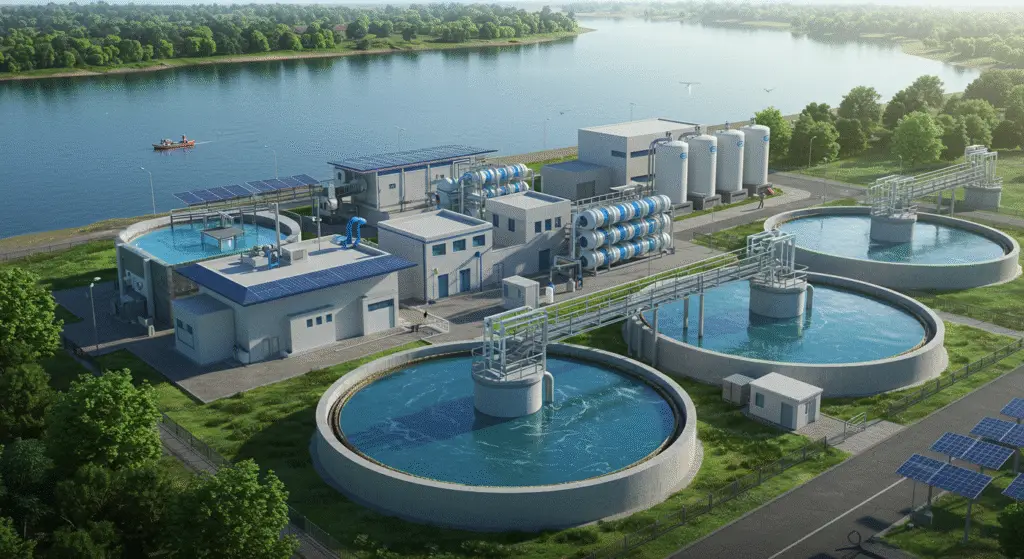Which field is best in civil engineering?

Civil engineering, often considered the oldest and most diverse of the major engineering disciplines, has long been a cornerstone of human progress, responsible for the design, construction, and maintenance of the physical infrastructure that underpins our modern societies. From the towering skyscrapers that define our urban landscapes to the intricate transportation networks that connect communities, the contributions of civil engineers have been instrumental in shaping the world we inhabit.
However, within the broad and multifaceted field of civil engineering, there exists a range of specialized disciplines and areas of focus, each one addressing a unique set of challenges and offering its own distinct set of rewards and opportunities. As aspiring civil engineers navigate this complex landscape, a common question often arises: which field within civil engineering is the “best” or most promising?
In this comprehensive article, we will delve into the top specializations within the civil engineering profession, examining the defining characteristics, core responsibilities, and future trends of each domain. By exploring the diverse array of options available to civil engineering professionals, we aim to equip readers with the knowledge and insights they need to identify the field that aligns most closely with their interests, skills, and career aspirations.
Structural Engineering: Designing the Backbone of the Built Environment

At the heart of civil engineering lies the field of structural engineering, which focuses on the design, analysis, and construction of the physical structures that form the backbone of the built environment. Structural engineers are responsible for ensuring the safety, stability, and resilience of buildings, bridges, dams, and other critical infrastructure, drawing upon their expertise in areas such as materials science, structural analysis, and earthquake engineering.
The role of structural engineers has become increasingly crucial in the face of growing concerns about climate change, natural disasters, and the aging of existing infrastructure. These professionals are tasked with developing innovative solutions that can withstand the forces of nature, accommodate the evolving needs of society, and minimize the environmental impact of construction.
As the world continues to urbanize and the demand for sustainable, resilient buildings and infrastructure grows, the field of structural engineering is poised to remain one of the most prominent and sought-after specializations within civil engineering. Structural engineers who can leverage emerging technologies, such as building information modeling (BIM) and advanced materials, and integrate principles of sustainability and resilience into their designs, will be well-positioned to drive progress and make a lasting impact on the built environment.
Geotechnical Engineering: Unlocking the Secrets of the Earth

Geotechnical engineering, a specialized field within civil engineering, focuses on the study of the Earth’s subsurface and the behavior of soil and rock formations, essential for the design and construction of foundations, retaining walls, and other infrastructure that interacts with the ground.
Geotechnical engineers play a crucial role in evaluating site conditions, assessing the stability and load-bearing capacity of the soil, and developing strategies for mitigating the risks posed by natural hazards, such as landslides, earthquakes, and sinkholes. Their work is critical in ensuring the safety and long-term viability of buildings, transportation networks, and other vital infrastructure.
As the world grapples with the impacts of climate change, the role of geotechnical engineers in developing innovative solutions for flood control, slope stabilization, and sustainable construction practices has become increasingly important. Additionally, the growing demand for renewable energy sources, such as geothermal power, has created new opportunities for geotechnical engineers to apply their expertise in the exploration and development of these emerging technologies.
With the rising emphasis on sustainability, resilience, and the responsible management of natural resources, the field of geotechnical engineering is poised to remain a key component of the civil engineering profession, offering a wide range of career paths and the opportunity to make a tangible impact on the communities they serve.
Transportation Engineering: Connecting the World

Transportation engineering, a dynamic and multifaceted field within civil engineering, focuses on the design, construction, and operation of transportation systems, including roads, highways, railways, airports, and public transit infrastructure.
Transportation engineers play a vital role in addressing the pressing challenges of urban congestion, improving mobility and accessibility, and developing sustainable transportation solutions that minimize environmental impact. Their responsibilities span a wide range of tasks, from traffic analysis and transportation planning to the design and maintenance of transportation infrastructure.
As the world grapples with the need for more efficient, eco-friendly, and equitable transportation systems, the role of transportation engineers has become increasingly crucial. These professionals are at the forefront of developing innovative solutions, such as intelligent transportation systems, multimodal hubs, and alternative fuel technologies, all while ensuring the safety and reliability of the transportation networks that connect communities and enable economic growth.
With the growing emphasis on sustainable mobility and the integration of emerging technologies, such as autonomous vehicles and smart city infrastructure, the field of transportation engineering is poised to remain a dynamic and in-demand specialization within the civil engineering landscape. Professionals who can navigate the complex interplay of transportation, urban planning, and environmental sustainability will be well-positioned to drive progress and make a tangible impact on the communities they serve.
Water Resources Engineering: Addressing the Global Water Crisis

Water resources engineering, a critical field within civil engineering, focuses on the development, management, and conservation of water resources, including the design and operation of water supply and wastewater treatment systems, as well as the mitigation of flood and drought risks.
As the world grapples with the growing challenges of water scarcity, pollution, and the impacts of climate change, the role of water resources engineers has become increasingly vital. These professionals are responsible for developing innovative solutions to ensure the reliable and sustainable supply of clean water, manage stormwater and flood control, and protect aquatic ecosystems, all while addressing the evolving needs of communities, industries, and the environment.
Water resources engineers draw upon their expertise in areas such as hydrology, hydraulics, environmental science, and project management to tackle complex challenges, ranging from the design of dams and reservoirs to the implementation of water conservation strategies and the restoration of natural water bodies. Their work is essential in promoting the responsible and equitable use of water resources, ensuring the long-term resilience and prosperity of communities worldwide.
As the global demand for clean water continues to grow and the impacts of climate change become more pronounced, the field of water resources engineering is poised to remain a crucial and dynamic component of the civil engineering profession. Professionals who can leverage emerging technologies, such as water reuse and desalination, and integrate principles of sustainability and environmental stewardship into their work, will be well-positioned to drive progress and make a lasting impact on the world’s most precious resource.
Emerging Trends and the Future of Civil Engineering
While the traditional specializations outlined above continue to be the cornerstones of the civil engineering profession, the field is constantly evolving, giving rise to new and innovative domains that address the pressing challenges of the modern era.
- Sustainability and Resilience Engineering:
As the world grapples with the impacts of climate change, the demand for civil engineers who can develop sustainable and resilient infrastructure has surged. Professionals in this emerging field are responsible for integrating principles of environmental stewardship, energy efficiency, and natural hazard mitigation into the design, construction, and operation of buildings, transportation systems, and other critical infrastructure.
- Smart City and Infrastructure Engineering:
The growing prominence of digital technologies, data analytics, and IoT (Internet of Things) has created new opportunities for civil engineers to design and optimize the infrastructure that underpins smart cities. These professionals are tasked with developing integrated, technology-driven solutions for transportation, water management, energy systems, and urban planning, enhancing the efficiency, sustainability, and responsiveness of the built environment.
- Interdisciplinary Collaboration:
As the challenges facing the civil engineering profession become increasingly complex and multifaceted, the need for cross-disciplinary collaboration has become more crucial than ever. Civil engineers are increasingly expected to work closely with professionals from other fields, such as urban planning, environmental science, and public policy, to develop holistic, integrated solutions that address the diverse needs and constraints of stakeholders.
By staying informed about these emerging trends and the evolving needs of the industry, aspiring civil engineers can position themselves at the forefront of progress, unlocking new opportunities for growth, innovation, and positive impact on the world around them.
Conclusion
The field of civil engineering is a rich and diverse tapestry, encompassing a wide range of specialized disciplines and areas of focus, each one offering its own unique set of challenges, opportunities, and rewards. From the foundational specializations of structural, geotechnical, transportation, and water resources engineering to the emerging frontiers of sustainability, resilience, and smart city design, the civil engineering landscape presents a wealth of possibilities for aspiring professionals.
As the world continues to grapple with complex, multifaceted challenges, the role of civil engineers in developing innovative, evidence-based solutions will become increasingly crucial. By identifying the field within civil engineering that aligns most closely with their interests, skills, and career aspirations, aspiring professionals can chart a fulfilling and impactful path, making a tangible difference in the communities they serve.
Whether aspiring civil engineers choose to pursue a career in the traditional specializations or explore the exciting frontiers of emerging domains, the opportunities for growth, impact, and professional fulfillment are boundless. By embracing the diversity of the civil engineering landscape and continuously expanding their knowledge and capabilities, these professionals can unlock new frontiers of progress, drive positive change, and leave an indelible mark on the world around them.
- https://worldcivilsociety.com/which-engineering-has-the-highest-salary/
- https://worldcivilsociety.com/navigating-the-engineering-landscape-determining-the-best-type-of-engineering/
- https://worldcivilsociety.com/how-many-sectors-are-there-in-engineering/

Pingback: What is field work in civil engineering? – worldcivilsociety.com
Pingback: Which engineering is most difficult? – worldcivilsociety.com
Pingback: Which engineering has the least math? – worldcivilsociety.com
Pingback: How to Elevate Architectural Vision with Structural Glass: Strategies for Creative and Sustainable Design – worldcivilsociety.com
Pingback: What are the structural properties of glass? A Comprehensive Overview – worldcivilsociety.com
Pingback: Structural Glass Design: A Comprehensive Guide – worldcivilsociety.com
Pingback: Which engineering is the most in demand? - worldcivilsociety.com
Pingback: Difference Between an Engineer and an Architect